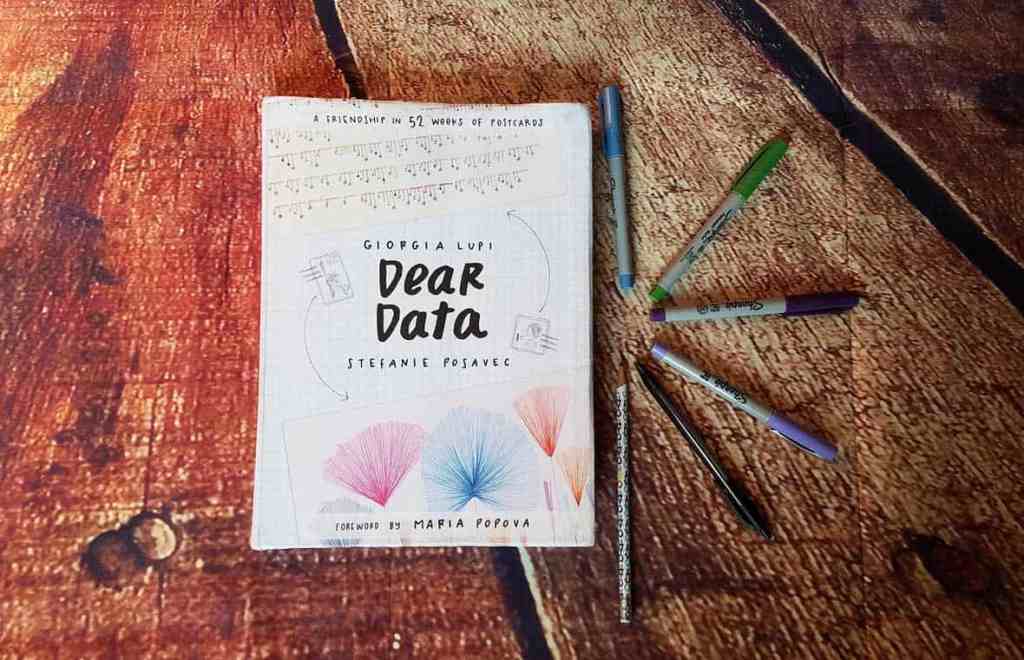See the world as a data collector

Stefanie Posavec and Giorgia Lupi are visual designers who both loved drawing, specifically drawing with data. In the introduction, they say that Dear Data was concieved as a “personal documentary” and that data can be used to become more humane and to connect with ourselves and others on a deeper level. Via these weekly postcards, Stefanie and Giorgia got to know each other better and deepened a friendship.
“For 52 weeks, we emphasized the observation of our data as personal stories.”
It’s the personal documentary aspect that appealed to me when I first heard about this project. As Giorgia says, “spending time with your data is spending time with yourself.” And “everyone secretly stores data (even if they don’t admit it).” Some examples of this are – the number of “likes” you got on a Facebook post, the amount of money in your bank account, the rising price of an item, and the number of countries you have visited. In a way, I am participating in a data collection project of my own when I document my life through the different Day in the Life and Week in the Life projects I have done. I also collect data on my various road trips such as gas prices, miles traveled, states visited, etc.

I know myself and my limitations though. Long-term projects such as this would fizzle out after a month at most. I do best in short spurts as mentioned above. I do find it quite fascinating though to see the post cards they created and read about some of the insights behind the data. If you also find this an interesting subject, I recommend that you check your library to see if they have a copy of the book. I definitely did not read every word but enjoyed flipping through it to get an overview and look closer at the various bits that jumped out at me.

Listen to an interview with the authors
You can listen to an interview about the project here… Dear (Data) Diary on Note to Self.
Want to give it a try?
You can buy a ready-made Dear Diary postcard kit on Amazon that comes with two sets of postcards ready to collect your data. Keep one for yourself and send the other set to a friend. Then start gathering your data and see how much you can learn about yourself and your friend over the course of a year. I’d love to hear about it if you decide to participate!
What’s next?
Wondering what I’m going to write about next? Click the photo to sign up for my newsletter so you don’t miss anything!

(You know you want to…)
Share it!













